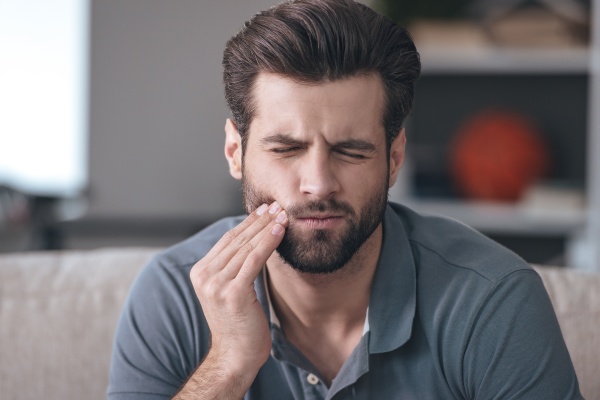Prevention of Dental Emergency

A dental emergency sends hundreds of people in search of immediate care every day, but that does not mean they are inevitable events. In fact, dental emergencies can often be avoided entirely by following a few simple rules to keep patients out of the dentist’s office between regular cleanings!
Everyday prevention
People can take care of their oral health every day with a little effort.
Practice regular oral hygiene
A dental emergency like an abscess or a chronic toothache can be the result of neglected oral hygiene. Teeth that do not receive twice-daily brushing, daily flossing or regular checkups can develop cavities that only get worse without treatment. In some situations, damaged teeth may need intensive or invasive care to address issues like infection, which can often require serious interventions like removal or root canals. Other good practices include using fluoride mouthwash, regularly replacing toothbrushes and using a dentist-recommended toothpaste.
Limit high-sugar food
Sugar is usually a prime suspect in many dental issues. This sweet chemical can remain on the teeth even after brushing, acting as a food source for the same bacteria that produce enamel-eroding acids that damage teeth. The Boston Dental Group recommends a diet low in sugars to protect sensitive teeth from damage, reducing the likelihood that an issue requiring emergency care may arise.
Special prevention
There are certain precautions that not all dental emergency patients have considered.
Use a mouthguard
Many dental emergencies are not the result of neglected hygiene or sugary food but because of direct trauma to the mouth and teeth. Urgent care clinics and dentist’s offices around the country see people of all ages who were struck in the mouth while playing sports or engaging in some other intensive activity or exercise.
Wearing a mouthguard while playing contact sports can spare teeth the brunt of the damage caused by an errant ball, elbow or face-down collision, which is why the American Dental Association recommends wearing one whenever appropriate. A mouthguard may make the difference between sitting out for a single game or going to the hospital.
Use scissors, not teeth
While this may seem silly, the American Dental Association is quick to point out that many people seek emergency dental care because their teeth were damaged while trying to open packaging. Using teeth to tear open plastic can cause damage if the packaging slips out from under the teeth, and nothing is separating the teeth from the force of a bite and clenched jaw.
The end result can be chipped or otherwise damaged teeth that require attention from an emergency medical professional. Using scissors or a knife to open packaging is always a much better idea; after all, whatever is inside the packaging probably is not worth a trip to the doctor.
Are you in need of emergency dental care?
No matter what the issue, immediate oral health care can be crucial. For issues like broken or knocked-out teeth, whatever the cause, patients should seek emergency treatment as soon as needed.
Request an appointment here: https://drcalldental.com or call Dr. Call Dental Center at (706) 425-6240 for an appointment in our Dalton office.
Check out what others are saying about our services on Yelp: Read our Yelp reviews.
Related Posts
Dental bridges can replace missing teeth effectively and often without needing surgery. Not only will this restore the smile, but it also helps patients avoid the negative oral health effects of missing teeth. A general dentist can determine whether a patient is a good candidate for bridges in a consultation. However, learning the basics can…
There are many reasons why bleeding gums may occur. If it only happens once in a while, it is typically not cause for concern. Gums can bleed because of brushing or flossing that is overly vigorous. If bleeding is an ongoing occurrence, however, there may be an underlying medical or dental condition causing it. The…
Patients do not have to accept bleeding gums as part of routine oral health maintenance as this condition can lead to more advanced forms of gum disease. It can easily be treated with specialized products in the early stages. These patients should visit a dentist as soon as possible after noticing gum inflammation or bleeding…
Dental bridges are a non-invasive restorative option for replacing missing teeth. However, they require proper care and maintenance to maintain the bridge and the surrounding teeth and gums. A general dentist can provide personalized instructions on caring for one’s bridge according to its type, location in the mouth, and other factors. However, patients can get…


